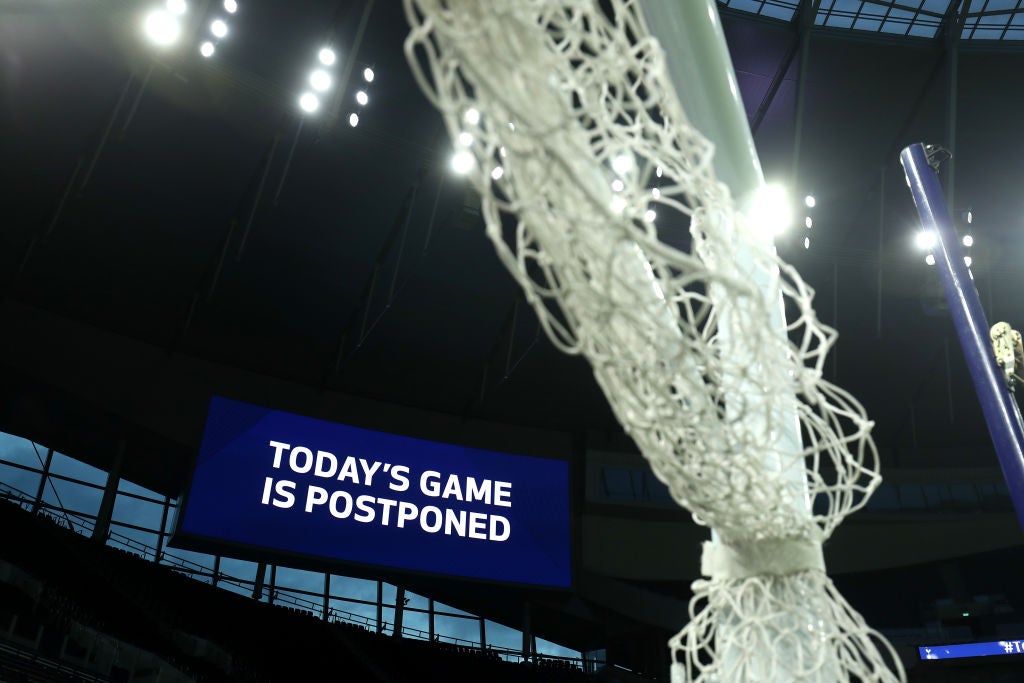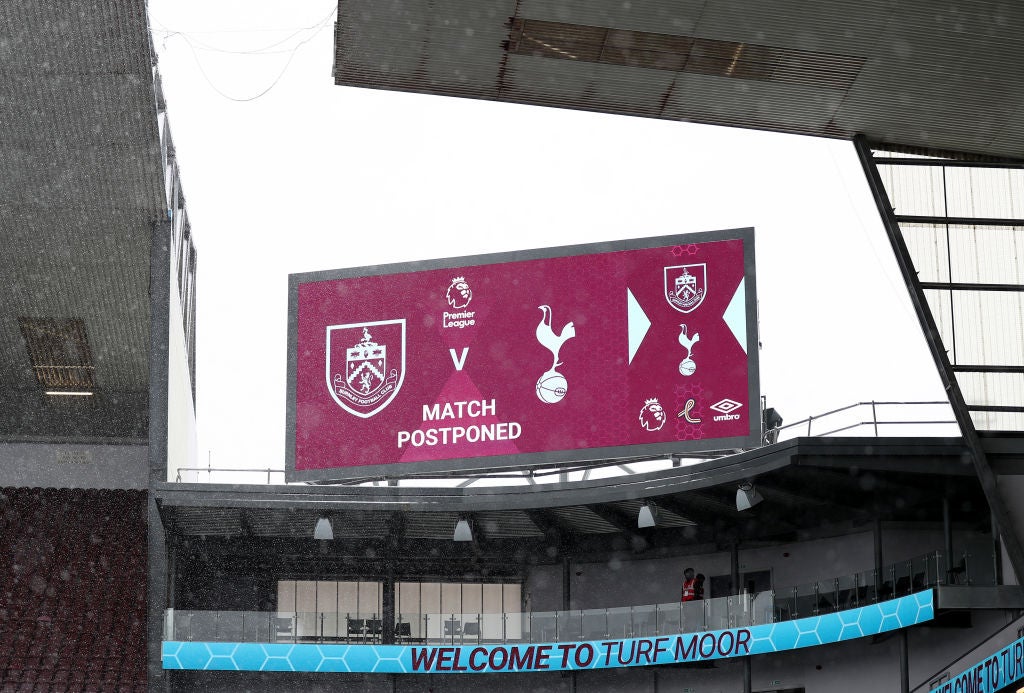Premier League spurns chance to improve itself amid Christmas Covid cancellations chaos
A total of 13 games have been called off since mid-December including a third of those set to take place on Boxing Day – but many more lie ahead across the festive run of fixtures

Your support helps us to tell the story
From reproductive rights to climate change to Big Tech, The Independent is on the ground when the story is developing. Whether it's investigating the financials of Elon Musk's pro-Trump PAC or producing our latest documentary, 'The A Word', which shines a light on the American women fighting for reproductive rights, we know how important it is to parse out the facts from the messaging.
At such a critical moment in US history, we need reporters on the ground. Your donation allows us to keep sending journalists to speak to both sides of the story.
The Independent is trusted by Americans across the entire political spectrum. And unlike many other quality news outlets, we choose not to lock Americans out of our reporting and analysis with paywalls. We believe quality journalism should be available to everyone, paid for by those who can afford it.
Your support makes all the difference.Rafa Benitez has a knack of distilling complex situations into a single, telling phrase. He was at it again this week when talking about Covid-related fixture chaos and the strain on players. “Money is managing the game,” the Everton manager said. “It’s quite complicated to find the right solution.”
The solutions are relatively easy. The complication is the cost.
The workload on players is too heavy, that much is clear. This is exacerbated by the pandemic. The underlying problems predate coronavirus and are only likely to get worse when things revert to normal. Clubs are happy to rake in the cash and let the players pay the price.
For Benitez, the short-term issue was the Premier League’s initial refusal to postpone Everton’s Boxing Day fixture away to Burnley. That has now been called off at the second time of asking. Like most foreign managers and players, the 61-year-old has always been somewhat bewildered with the British obsession with festive football and ploughing on through the depths of winter. Jurgen Klopp and Pep Guardiola express similar views. They have the statistics to back up their opinions. As far back as eight years ago a Uefa study showed that Premier League players were four times as likely to suffer injuries in the final three months of the season than their European peers.
The counter-arguments – as so often in modern British life – are emotional and irrational. When Klopp complained about playing two games in three days after Christmas, Alan Brazil used his talkSport radio show to accuse the Liverpool manager of being a “numpty”. His co-host Ally McCoist said the schedule was “part and parcel of British footballing culture”.
The message from the former Rangers striker was clear: “That’s what we do. Get on with it.”
Blindly repeating the mistakes of history does not make things right. The pandemic gave the game and its authorities the chance to take a step back and reassess whether the old ways are working. That, so far, has been an opportunity missed.
Increasingly, it is harder to frame the debate as an “us and them” conversation, with plucky Brits wanting to soldier on over Christmas and weak-willed Johnny Foreigner wanting to put his feet up. Jordan Henderson joined the argument this week, saying he is concerned that “nobody takes player welfare seriously”.
Liverpool and Arsenal were among a group of clubs who proposed playing two, rather than three games over the festive period. They were outvoted.
This is the perennial problem of the Premier League. It requires the votes of 14 of the 20 clubs to determine policies. The impetus for innovation cannot come from the organisation’s London headquarters or from Richard Masters, the chief executive. Change can only begin in the boardrooms of top-flight stadiums. There, cash is king.
This is not to absolve the Premier League for some of the present mess. The decision to call off games needs to be ratified by the organisation’s board, which has led to some preposterously late postponements. The EFL has allowed clubs to make the decision on whether they are able to field proper teams early enough to avoid a situation where fans have already set off for the game. If the EFL later deem the clubs involved to have, in the words of one executive, “taken the p*ss”, disciplinary action will be taken. The Premier League’s process has been unwieldy.
Yet the relentless schedule is not the Premier League’s fault. The clubs define the direction of the division. This has been true right from the creation of the new entity in 1992.
Back then, there was a strong feeling that fewer games were preferable for the health of English football. The imperative three decades ago was to improve the performance of the England side. The original plan was to cut the old first division from 22 teams to 18. At the first meeting to discuss this, Peter Swales – who was the head of the FA’s international committee and the man most invested in the success of the national team – effectively killed the idea of a trimmed-down league within the first five minutes. The Manchester City chairman helped set the tone for self-interest right at the inception of the new era and the clubs have wielded the power ever since. Like many of his peers, Swales recognised that a smaller division – and fewer matches – meant his team were more likely to slip out of the elite. In the end, doing the right thing would cost him money.
City are a very different entity now and demonstrate a different sort of self-interest. They no longer have financial worries. Guardiola has even postulated that overworked players could go on strike to force their owners into a more reasonable stance. He can afford to think like this but it does not make sense to run footballers into the ground. There are just too many games.

Things will get worse. Fifa’s desire for a biennial World Cup is simply about gouging more cash out of the public. Player welfare is not among the main considerations. The clubs who wanted to play less this month will be arranging lucrative but exhausting summer tours as soon as the medical climate allows. When the Premier League introduced its limited winter break almost two years ago, it had to ban teams using the time off to arrange coffer-filling friendlies.
Money is managing the game. That means that injuries are more likely to happen. Bigger squads are no panacea for a drop-off in standards. Still, as long as customers are paying to see the product, most of the clubs will not care too much about their employees.
Carry on Christmas. It’s football’s annual tradition. It ages more painfully every year, it’s not funny and the lack of quality is obvious. There has to be a better way.
Join our commenting forum
Join thought-provoking conversations, follow other Independent readers and see their replies
Comments